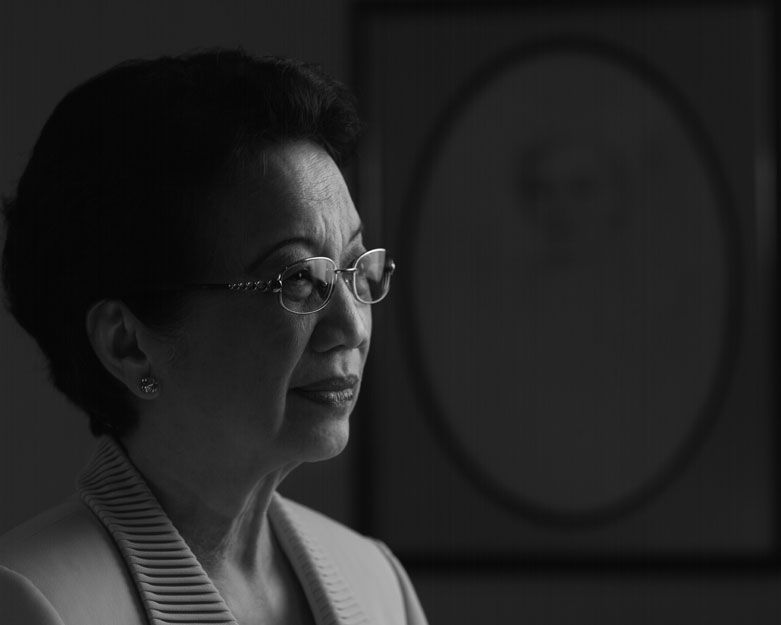Cronyism has always been present in our country's political history. It is imbibed in our culture where we owe favors to others and vice versa. We encourage "utang ng loob," where we do favors for others, and we expect something in return.

Many years after that, democracy was supposedly restored under the Cory Aquino administration. In some aspects, this could be true since Cory was a very peaceful person, and the whole spirit of the EDSA Revolution which she led was also a symbol of peace and truth.
However, she was weak in terms of governing and disciplining her subjects. Her relatives took advantage of her by doing 'things' under her nose, and getting away without accountability. Oh yes, they enjoyed their stay. They enjoyed their stay at the Filipino people's expense for a long time.
Two glorious generations of cronyism.
The Aquino administration was an incompetent and mediocre administration. The Philippine second-rate economy today, despite the global financial crisis, is no different from that of the Cory Aquino administration.
Tita Cory
According to Wikipedia, the Aquino administration in fact, lacked economic and political stability.
"By the time of the People Power revolution, the economy had declined, falling severely below the growth of other nations in Southeast Asia. A severe recession in 1984-85 saw the economy shrink by more than 10%, and perceptions of political instability during the Aquino administration further damped economic activity."

And now, Noynoy Aquino is running for president. Do we allow history to repeat itself? Yes, he has a glorious lineage tracing back to his father. But this does not justify the fact that he has relatives (and possibly himself) stealing from our tiny treasure chest.
This will happen again if we do not make sure that we don't vote for another Aquino.
See below, for just plain bullsh*t.
Aquino: No need to be a crony for business to prosper
MANILA, Philippines—You don’t need to be a crony for your business to prosper under an Aquino administration.
This was the message that Sen. Benigno Aquino III, the frontrunner in candidate preference surveys ahead of next May’s elections, brought to local business leaders in his first address before the influential Makati Business Club since he declared his candidacy last September.
Speaking to a standing-room-only crowd, Aquino laid out a pro-business and pro-market agenda while distancing himself from the methods of the Arroyo administration.
“One not need be a crony to succeed in the field of business,” he said to warm applause.
No competition
He said a government under him “will not compete with business... nor use its regulatory powers to extort, intimidate and harass.”
Aside from promising a crony-free administration, Aquino also said he would not impose new taxes or increase tax rates, if elected.
His 18-minute talk was interrupted by applause at least seven times, at the end of which, MBC members—the overwhelming majority of whom have voiced support for his candidacy—gave Aquino a standing ovation.
Aquino, 50, a first-term senator and graduate of economics, told the businessmen there remains widespread perception that “success in the business milieu can almost be directly correlated to your closeness to the powers-that-be.”
In such a situation, businessmen are forced to focus their activities on maintaining relationships “in order to retain the favors that they receive in exchange for cultivating that relationship.”
“This has fostered the wrong kind of competitiveness. While it may work locally, for now, it has not enabled these players to become competitive in the world market, where the rules of the game do not take special relationships into consideration,” he said.
No new taxes
Despite facing a burgeoning budget deficit, Aquino said he would refrain from imposing new taxes or increasing tax rates.
To achieve this, his economic team will initially focus on plugging revenue leaks caused by smuggling and tax evasion, and on the rationalization of fiscal incentives.
“I strongly believe that we can collect more taxes at the [Bureau of Internal Revenue] and higher duties at the [Bureau of] Customs if we become more serious in curbing and punishing tax evasion and smuggling,” he said.
“My vision is to transform our country into one where we have lower tax rates enjoyed by all, rather than have some enjoy absolute tax exemptions while we burden the rest of the economy with very high tax rates,” he said.
He promised to cut down on questionable tax breaks granted to individual firms and to spread the tax burden more equitably in order to be able to lower the overall tax rate for all corporate and individual taxpayers.
Aquino sidestepped questions about the composition of his economic team, saying he did not want his advisers and their business interests to be subjected to “harassment” from his rivals or the administration.
Chief economic adviser
However, he pointed to his running mate, Sen. Manuel Roxas II, as one of his chief economic advisers who will guarantee policy stability and continuity in an Aquino administration.
Aquino received strong applause for his tax policies. But asked if these commitments were feasible, Wallace Business Forum president Peter Wallace said it was unwise for Aquino to commit not to implement any new taxes or increase current tax rates.
“I don’t think it’s wise. For example, the tax on liquor and cigarettes—there’s no question that needs to be amended,” Wallace said.
“On catching the tax evaders, he has to set an example by catching the big crooks and not just going after small fry,” he said.











